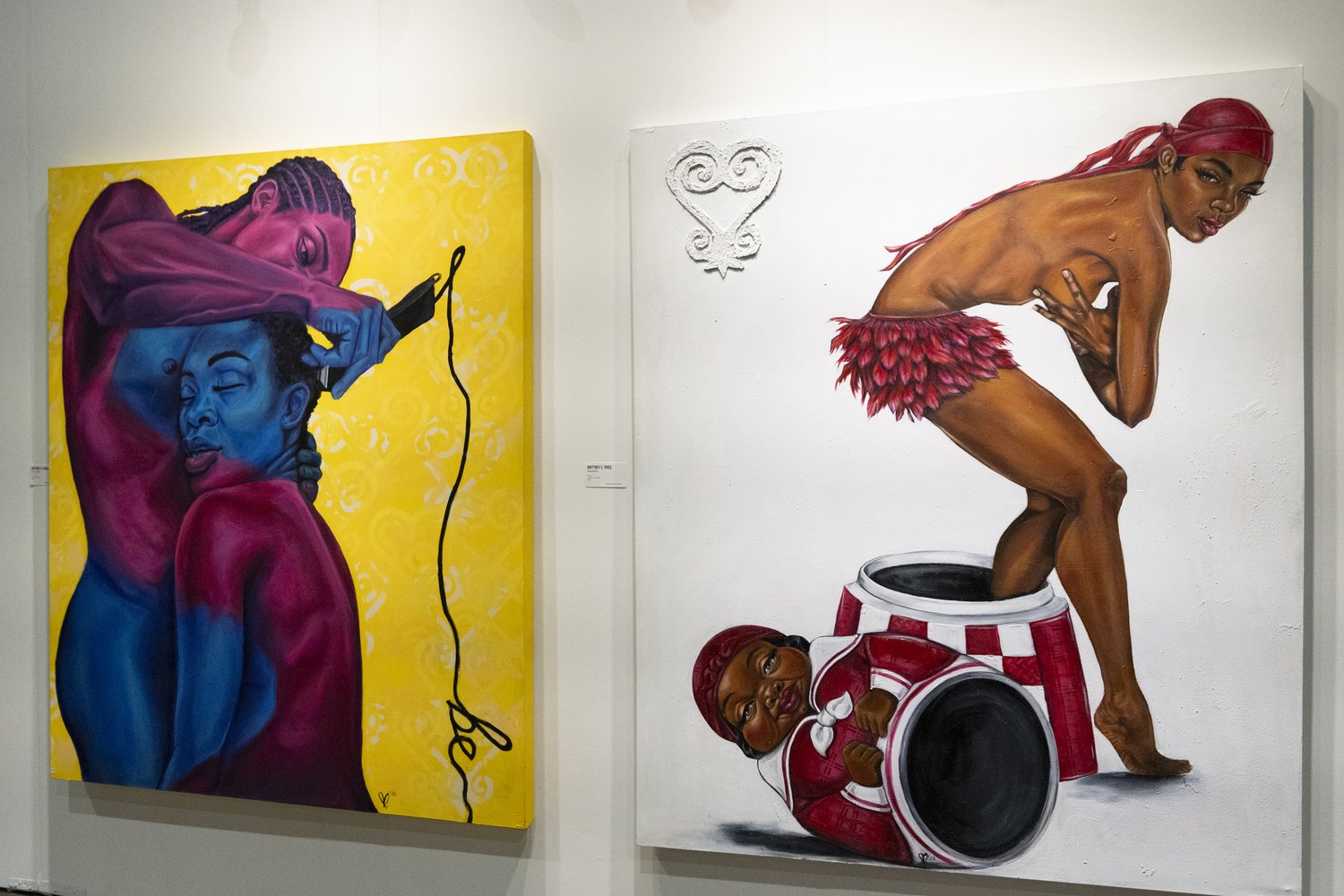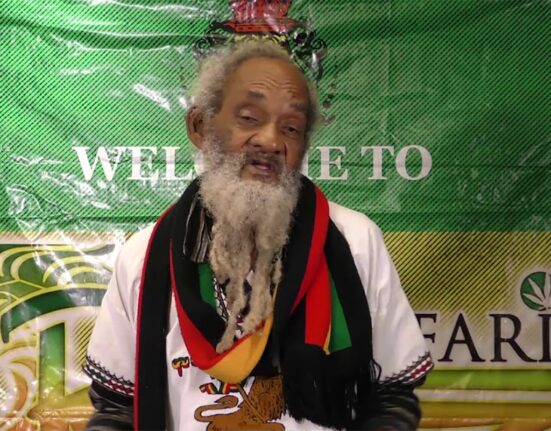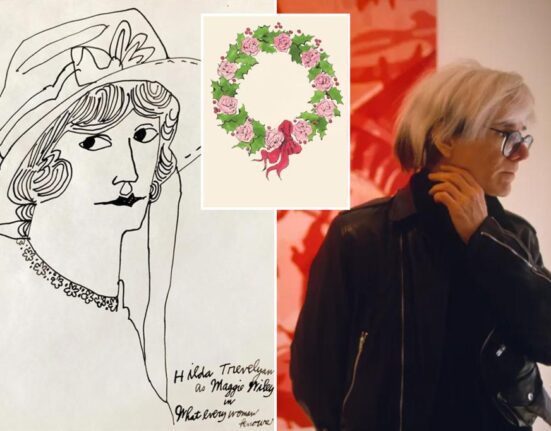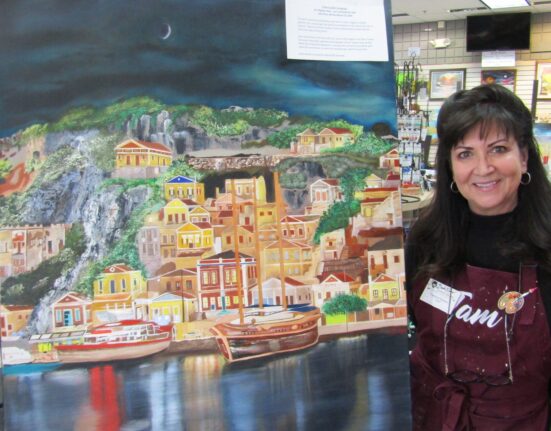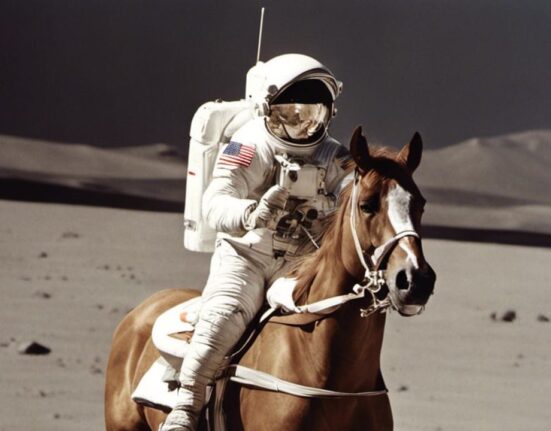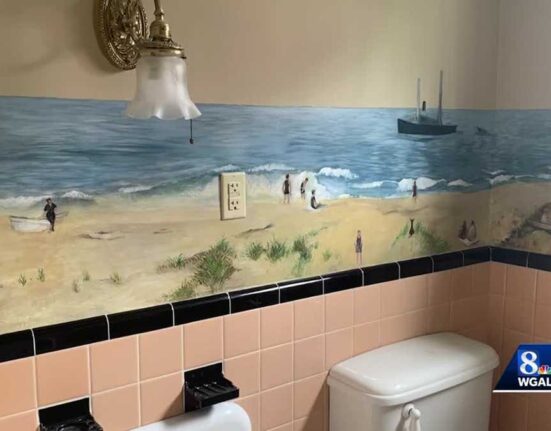Exhibits like the LA Art show encourage artists to not be afraid to share their art, attend as many art showcases as possible, and to enjoy their life looking through the lens of a creator. The art shown at the LA Art Show included clay and wooden sculptures, photographs, paintings, visual and video projections and Artificial Intelligence. It was a space designed for every kind of visual presentation and the possibility for collaboration and new artists to establish themselves in the art world.
Los Angeles’ largest and longest-running art fair, the LA Art Show, features local and international art galleries in its 29th year. Hosted at the Convention Center in Downtown on Feb. 15-18, and the show featured an art line up including three galleries from Santa Monica: bG Gallery, Building Bridges Art Exchange, and Copro Gallery.
The art fair started at the Pasadena Convention Center in 1995 before moving to the John Wooden Center on UCLA’s campus. It then moved to Santa Monica’s Barker Hanger before making its current home at the Los Angeles Convention Center in 2009. With more than 180,000 square feet of exhibition space, the LA Art Show hosts galleries from around the world with over 100 exhibitors from countries including Italy, Ireal, the United Kingdom, Philippines, Peru, South Korea, Taiwan, France, Japan, Australia, Switzerland, and all over California, New York, and Florida. These spaces are testing the boundaries of new technologies, showcasing AI, as well as a major emphasis on cultural significance, including Black History Month, as key initiatives to support the next generation of artists.
Produced and directed by Kassandra Voyagis, a Greek actress, the gallery was organized with mini galleries, curators, collectors, and celebrities. Opening night was on Valentine’s Day and was hosted by actress Lucy Hale. The art show’s charity partner, the American Heart Association, received 15% of ticket sales in support of their Life is Why campaign.
One stand-out artist at the show was Carlos Casto Arias, who was presented by the Museum of Contemporary Art in Bogota, Colombia, as part of DIVERSEartLA. In front of his gallery, he had an assemblage; a person laying on the floor with a purple blanket over his body in front of a woven tapestry depicting an art piece called “The Living Prophets, Heaven’s Gate.”
Aria’s “mythstories” is a series that explores the relationship between myths and history woven in fabric tapestries. His medieval tapestries are the foundation of his series, even though some of his work captures events as recent as the pandemic.
Another gallery at the show was Nextdoor Neighbor, a new artist membership curated by Josiah David Jones with Valence Projects to celebrate Black artists in the Los Angeles neighborhood and give them a platform to share their work. Rod Benson, a former basketball player for the Pacers, attended one of Jones’ art shows and was inspired to share his own paintings featuring the athlete’s memories from what he enjoyed while walking throughout Los Angeles.
“My main goal is to continue to build a community of artists and to feature artists who are willing to share their voice and their visions in a Black-focused way, but not necessarily only with Black artists. My approach is to create positive impact art initiatives,” Jones said. “I believe that artists are the leaders of their communities, and if there’s money coming in to support anyone, it should be the community leaders, the artists.”
The collective started with street artists. Jones started building shows around these artists until his space grew, and he then began curating more exhibitions. With every exhibit, the group kept expanding and more artists joined to feature their work in these curated community gatherings.
Valence Projects hosts 4 to 5 shows a year and started one exhibition series in January at the Andaz West Hollywood ‘Black in Every Color.’ He also curates an international exhibition series highlighting emerging Black cultures and creatives. Jones is planning the official celebration of Juneteenth in Tokyo with the government and the Japanese embassy supporting their artistic efforts. “Tokyo has a very strong influence on black culture and vice versa,” he said. Jones’ plans to use his art platform to shed a bright light on the black community and elevate his artists to an international stage.
Jones decided to create a membership with his gallery for artists interested in being featured and showing their work. By hosting shows throughout the year, including solo shows and duo shows, Jones works with artists on making curating a gallery of their own an easier process. Rather than charging artists wall-hanging fees and multiple submission fees, he created one submission fee for the year allowing artists to be considered for each show that is organized.

